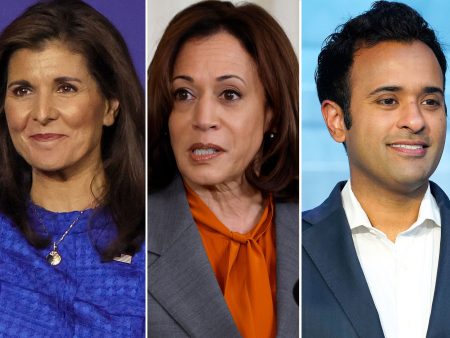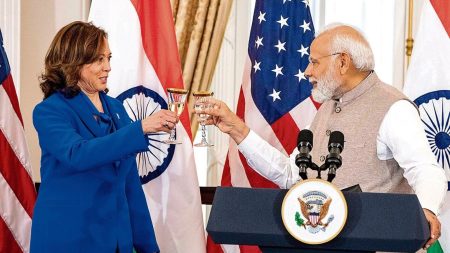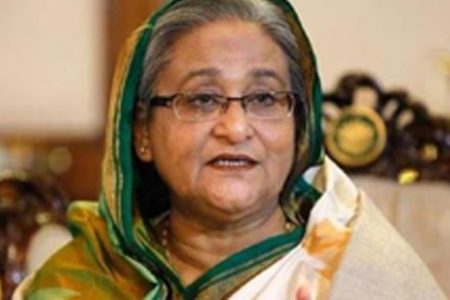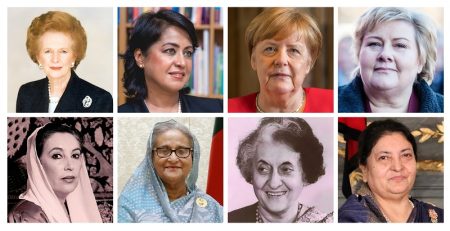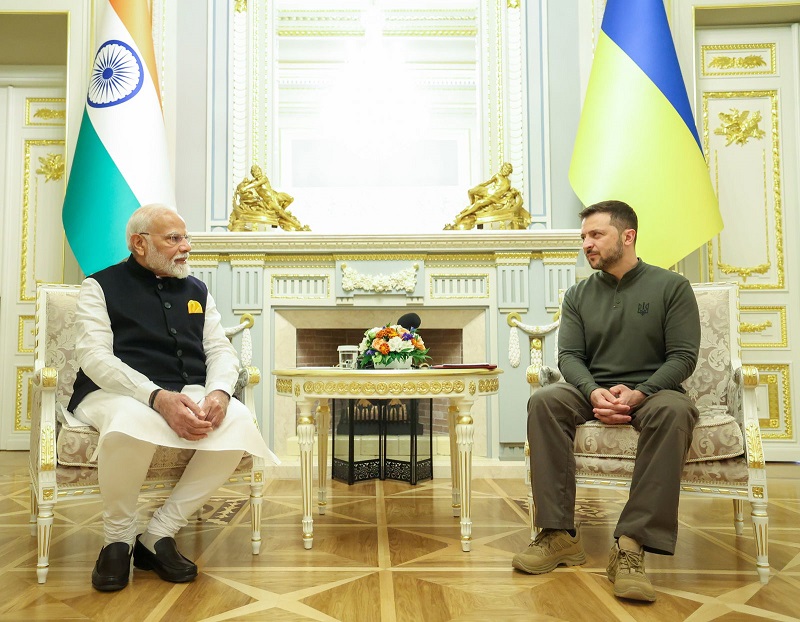
PM Modi’s Ukraine Visit: A Genuine Peace Effort Amidst Western Media’s Negative Bias
In a world increasingly polarized by political allegiances and media narratives, genuine efforts towards peace often face skepticism and misinterpretation. Prime Minister Narendra Modi’s recent visit to Ukraine serves as a prime example of this phenomenon. His journey, intended to be a diplomatic endeavor aimed at peace, has been received with a mixed response from international observers, with a significant portion of the Western media portraying it through a lens of negativity and cynicism. However, it is essential to look beyond the biased coverage to understand the true intentions and potential impact of Modi’s visit.
A Historic Diplomatic Initiative
Prime Minister Modi’s visit to Ukraine marked a historic step in India’s foreign policy, illustrating a proactive stance in international diplomacy. For a leader of a major global democracy to engage directly in the conflict-ridden region underscores India’s commitment to playing a constructive role on the world stage. This move aligns with India’s long-standing principle of advocating for peaceful resolution of conflicts and its consistent support for dialogue over discord. By engaging with both Ukraine and Russia, Modi demonstrated a willingness to listen and offer India’s beneficial offices for facilitating peace—a rare stance in today’s divided world.
Modi’s visit to Ukraine was not a mere symbolic gesture; it was a calculated diplomatic move. His discussions with Ukrainian President Volodymyr Zelenskyy revolved around understanding the ground realities, listening to Ukraine’s concerns, and offering a balanced perspective that could bridge the gap between the conflicting parties. Modi’s approach was not to take sides but to emphasize the need for dialogue and de-escalation. In doing so, he reinforced India’s position as a neutral entity focused on peace, despite external pressures to align with one faction over the other.
Modi’s Track Record in Diplomacy
Prime Minister Modi has shown a consistent dedication to international peace and stability. From his active participation in the BRICS summit to his engagement with the United Nations, Modi has emphasized the need for reforming global institutions to make them more representative and inclusive. His outreach to Ukraine, therefore, is not a sudden departure from India’s foreign policy but a continuation of his efforts to bring about a more balanced and fair global order.
In Ukraine, Modi’s message was clear: dialogue is the only way forward. He highlighted India’s own experiences managing diverse populations and conflicts, and he offered India’s assistance in facilitating dialogue between Ukraine and Russia. This is a significant step, as India shares historical ties with both countries, having maintained strong relations with Russia while also building partnerships with the European Union and the United States.
A Balanced Perspective Amidst Bias
Despite the clarity of Modi’s intentions, the Western media’s portrayal of his visit has been less than favorable. Headlines have often suggested skepticism about India’s neutrality or questioned the effectiveness of Modi’s diplomatic efforts. This negative bias stems partly from the complex geopolitical dynamics that have seen Western powers align more directly with Ukraine against Russian interests. Therefore, we view any third-party involvement that doesn’t explicitly support this alignment with suspicion.
However, such skepticism overlooks the reality of India’s unique position in global geopolitics. India, as a country with historical ties to Russia but growing strategic partnerships with the West, holds a potential role as a mediator that few other nations can claim. Modi’s visit was an attempt to leverage this unique standing, offering a fresh perspective on a conflict where entrenched positions have so far hindered any meaningful progress towards peace.
India’s approach under Modi’s leadership has always been one of strategic autonomy—maintaining positive relations with all major powers without compromising its national interests. This diplomatic balancing act is precisely what the Ukraine situation demands. By engaging both Kyiv and Moscow, Modi sought to open channels for dialogue that could eventually lead to de-escalation and negotiation, a necessity for any sustainable peace.
The Power of Non-Alignment
The criticism from Western media also reflects a broader misunderstanding of the principles of non-alignment that countries like India advocate. Non-alignment does not imply indifference or a lack of moral clarity; rather, it signifies a commitment to peace and stability through impartial engagement. Prime Minister Modi’s visit to Ukraine was in the spirit of this philosophy, offering a non-partisan platform for dialogue.
India’s history with the Non-Aligned Movement, its role as a peacekeeper in various international conflicts, and its advocacy for multilateralism provide it with the credibility to mediate in such complex situations. Modi’s visit to Ukraine was not about making headlines but about fostering an environment where peace talks can be considered viable. It was a step towards breaking the cycle of violence and distrust that has plagued the region.
Moving Beyond Media Narratives
While Western media narratives have often focused on Modi’s relationship with Russia and India’s purchase of Russian oil, they have failed to acknowledge the larger picture—India’s consistent call for a peaceful resolution. Modi’s visit to Ukraine was an affirmation of India’s stand against violence and unilateral actions. It was about sending a message that India, as a responsible global player, is willing to contribute to peace in any way possible.
The simplistic binary framing of the conflict by some Western media outlets does a disservice to the complexities of international diplomacy. India’s nuanced approach, as demonstrated by Modi’s visit, acknowledges the multifaceted nature of global conflicts and the importance of engaging all parties involved. By visiting Ukraine, Modi reinforced India’s commitment to peace, showing that genuine diplomatic efforts go beyond mere rhetoric and require ground-level engagement.
A Step Towards Peace
We should view Prime Minister Modi’s visit to Ukraine as a sincere attempt to contribute to peace. It was a step towards breaking the deadlock in a conflict that has far-reaching implications beyond the immediate region. Rather than casting aspersions on India’s intentions or capabilities, it is crucial for the global community to support and recognize such diplomatic efforts.
In a world where divisions are deepening and the voices of reason are often drowned out by the noise of political rhetoric, leaders like Modi, who take the initiative to mediate and advocate for peace, should be encouraged. India’s role in Ukraine might not result in immediate breakthroughs, but it sets a precedent for other nations to engage in dialogue and diplomacy. The path to peace is long and arduous, but every genuine effort, like Modi’s visit, brings us a step closer to that ideal.

Editor-in-Chief
Raj Shah

